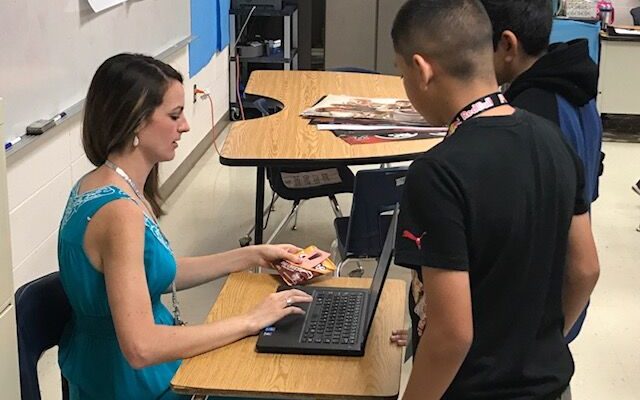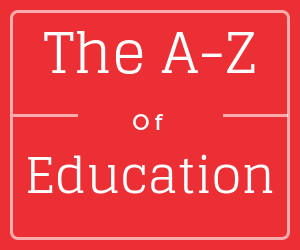50 Things That You Should Know About Educators

I am sick and tired of seeing educators being misrepresented in the media and homes across America. We are often painted as glorified baby sitters who are failing to educate tomorrow’s students. Well, enough is enough. In this piece, I want to set the record straight. Let’s discuss 50 things that you should know about educators.
- Educators are passionate people who enjoy making a difference.
- Educators do not become Educators because they are not smart enough to do anything else. Instead, they become Educators because they want to make a difference in shaping young peoples’ lives.
- Educators do not just work from 8 a.m. to 4 p.m. with summers and weekends off. Most get to school early and stay late.
- Educators get annoyed with students who have a lot of potential but do not want to work hard to maximize their potential.
- Educators love students who come to class every day with a positive attitude and genuinely want to learn.
- Educators enjoy collaboration, bouncing ideas, and best practices off of each other, and supporting each other.
- Educators respect parents who value education, understand where their child is academically, and support what the teacher does.
- Educators are real people. They have lives outside of school. They have terrible days and good days. They make mistakes.
- Educators want a principal and administration that support what they are doing, provide suggestions for improvement, and value their contributions to their school.
- Educators are creative and original. No two Educators do things the same. Even when they use another teacher’s ideas, they often add their twist to it.
- Educators are always evolving. They are always looking for better ways to reach their students.
- Educators have favorites. They may deny it, but there are some students, for whatever reason, with whom they have an organic connection.
- Educators become annoyed with parents who do not realize that education should be a partnership between the teacher and parents.
- Educators are control junkies. They don’t like it when things do not happen according to plan.
- Educators realize that all students are different, so they differentiate instruction to meet their needs.
- Educators do not always like each other. However, they find a way to be professional in the workplace.
- Educators love being acknowledged. Whether it’s a note from a parent or praise from their principal, they each attention up.
- Educators do not like standardized testing. They think it ass unnecessary pressure on them and their students.
- Educators do not become educators because of the salary; they understand that they are usually going to be underpaid for what they do.
- Educators dislike it when the media focus on the 1% of Educators who make mistakes, instead of on the majority who are rockstars.
- Educators love it when they run into former students who tell them how much they appreciated what they did for them.
- Educators hate the political aspects of education.
- Educators enjoy being asked for input on critical decisions that the administration will be making. It gives them ownership in the process.
- Educators are not always passionate about what they are teaching, but they suck it up and perform.
- Educators genuinely want the best for all of their students: They never want to see a child fail.
- Educators hate to grade papers, but it is a part of the job, but it is also extraordinarily monotonous and time-consuming.
- Educators continually look for better ways to reach their students. They are not happy with mediocrity.
- Educators often spend their own money on the things they need to run their classrooms.
- Educators want to inspire others around them, beginning with their students but also including parents, other Educators, and their administration.
- Educators work all year long to make sure they are prepared.
- Educators understand that classroom management is a part of their job, but it is often one of their least favorite things to handle.
- Educators realize that students deal with challenging situations outside of the classroom, and respond accordingly.
- Educators love engaging in meaningful professional development and despise time-consuming, sometimes pointless professional development.
- Educators want to be role models for all of their students.
- Educators want all of their students to be successful. When a student fails, they take it seriously.
- Educators love their time off. It allows them to reflect and reenergize.
- Educators feel like there is never enough time in a day. There is always more that they think they need to do.
- Educators would love to see classroom sizes capped at 15 to 20 students.
- Educators want to maintain an open line of communication between themselves and their students’ parents throughout the year.
- Educators understand the importance of school finance and the role it plays in education but wishes that money was never an issue.
- Educators want to know that their principal has their back when a parent or student makes unsupported accusations.
- Educators dislike disruptions but are generally flexible and accommodating when they occur.
- Educators are more likely to accept and use new technologies if they are adequately trained on how to use them.
- Educators become frustrated with the relatively few educators who lack professionalism and are not in the field for the right reasons.
- Educators dislike it when a parent undermines their authority by denigrating them in front of their children at home.
- Educators are compassionate and sympathetic when a student has a terrible experience.
- Educators want to see former students be productive, successful citizens later in life.
- Educators invest a lot of time with struggling students. But it is worth it, to experience that “aha” moment when the student starts to comprehend the material.
- Educators are often all guys for a student’s failure when, in reality, it is a combination of factors outside the teacher’s control that led to failure.
- Educators often worry about many of their students outside of school hours, realizing that they do not always have the best home life.
What did I miss?






